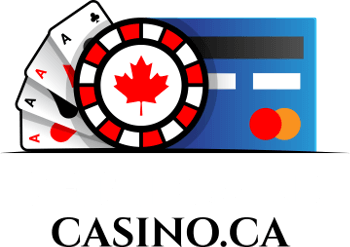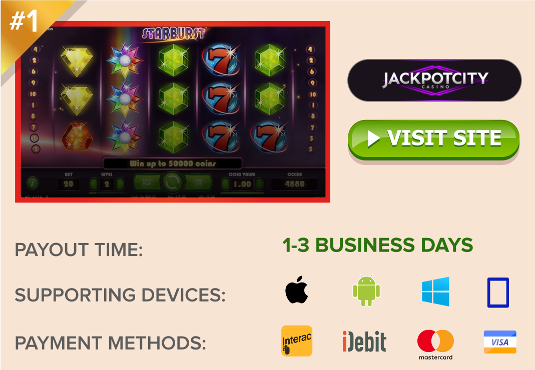Rules and Strategy for Caribbean 21 (RTG)
How to Play Caribbean 21, an exclusive online blackjack game available only at RTG internet casinos.
 Caribbean 21 is not your ordinary blackjack game. In fact, it’s only loosely based on the rules of blackjack. You can’t really even call it a blackjack game, due to the fact that there’s no such thing as a “blackjack”, natural or otherwise. That’s because Aces are only valued at 1 point; never 11. But don’t let that deter you from playing.
Caribbean 21 is not your ordinary blackjack game. In fact, it’s only loosely based on the rules of blackjack. You can’t really even call it a blackjack game, due to the fact that there’s no such thing as a “blackjack”, natural or otherwise. That’s because Aces are only valued at 1 point; never 11. But don’t let that deter you from playing.
Caribbean 21 has got far more player-friendly criterion than most card game creators are willing to implant within their rules. It’s also packed with enough un-pleasantries to offset those rules and bring the edge back into the casino’s favor. However, pound for pound, Caribbean 21 comes in as one of the most generous RTP blackjack games on the world wide web, featuring a theoretical return of 99.81% (house edge 0.19%) with proper strategy applied (see below).
Today we’ll be covering the complete rules of Caribbean 21, as introduced several years ago by digital games creator RealTime Gaming (RTG). Before we go on, let me point out that Caribbean 21 and Caribbean Blackjack are not the same game. The latter is found only in a few land-based casinos. I’ll try to cover that one on a separate page when I get time.
How to Play Caribbean 21
The base game is similar to classic blackjack in many ways, but with more generous rules. For instance, players can double on any two cards, and split on any two cards, whether they match in rank or not. Ayers can also double after a split. They can even hit after a double, or re-double if they so desire. Aces can be split, re-split, hit after splitting, and doubled after splitting, but that’s because Aces are not 11s in this game – and so begins our foray into the negative-impact rules of Caribbean 21.
An Ace counts only as 1. It can never be anything more. Therefore the typical Blackjack (A+10) does not exist. Instead, the best possible hand is a “Caribbean 21”, made up of one Ace and two 10s or face cards (A+10+10). A Caribbean 21 pays 3:2, even if it is the result of split hands.
All of this generosity on the casino’s part is offset by one unhappy little rule. The dealer wins all ties. They don’t push – they lose. That alone adds 9.00% to the overall edge, bringing the game just back into the casino’s advantage with a 0.19% house edge.
Specific Rules of Play
- Decks: 2+
- Dealer Stands: Any 17
- Doubling: Yes, on any 2 cards
- Splitting: Yes, on any 2 cards
- Double after Split: Yes
- Re-Double: Yes
- Hit after Double: Yes
- Resplit Aces: Yes
- Draw to Split Aces: Yes
- Surrender: Yes, anytime, 1/2 of total bet(s) returned
- Caribbean 21 Pays: 3 to 2 (First hand only, even after split)
- Insurance Pays: 9 to 1 for dealer Caribbean 21
- Dealer Wins all Ties
Caribbean 21 Strategy
The ability to split any two card hand and hit or re-double after doubling down changes the elements of strategy for this game. Below are a series of charts to help you make the correct decision in every possible situation. The first chart is designed for deciding any 2-card hand. The second chart is for any hand of 3 or more cards. All decisions are made based on the dealer’s up-card.
Strategy for 2-Card Hands
The first columns indicates the player’s first and second cards. The right column details how to react, based on the dealer’s up-card.
| Player Hand | How to Act Against Dealer’s Up-Card |
| 1 + 1 | Split against 1-9, otherwise Hit |
| 1 + 2 | Split against 2-8, otherwise Hit |
| 1 + 3 | Split against 2-8, otherwise Hit |
| 1 + 4 | Split against 2-8, otherwise Hit |
| 1 + 5 | Split against 2-8, otherwise Hit |
| 1 + 6 | Split against 2-8, otherwise Hit |
| 1 + 7 | Split against 2-6, otherwise Hit |
| 1 + 8 | Split against 2-6, Double on 7, otherwise Hit |
| 1 + 9 | Split against 5-6, Hit on 1 or 10, otherwise Double |
| 1 + 10 | Double |
| 2 + 2 | Split against 4-6, otherwise Hit |
| 2 + 3 | Split against 4-6, otherwise Hit |
| 2 + 4 | Split against 4-6, otherwise Hit |
| 2 + 5 | Split against 4-6, otherwise Hit |
| 2 + 6 | Split against 6, Double on 4-5, otherwise Hit |
| 2 + 7 | Double against 2-7, otherwise Hit |
| 2 + 8 | Double against 2-9, otherwise Hit |
| 2 + 9 | Double |
| 2 + 10 | Split against 1-9, otherwise Hit |
| 3 + 3 | Split against 4-6, otherwise Hit |
| 3 + 4 | Split against 4-6, otherwise Hit |
| 3 + 5 | Split against 6, Double on 4-5 otherwise Hit |
| 3 + 6 | Double against 2-7, otherwise Hit |
| 3 + 7 | Double against 2-9, otherwise Hit |
| 3 + 8 | Double |
| 3 + 9 | Split against 2-8, otherwise Hit |
| 3 + 10 | Split against 1-9, otherwise Hit |
| 4 + 4 | Split against 6, Double on 4-5 otherwise Hit |
| 4 + 5 | Double against 2-7, otherwise Hit |
| 4 + 6 | Double against 2-9, otherwise Hit |
| 4 + 7 | Double |
| 4 + 8 | Split against 2-7, otherwise Hit |
| 4 + 9 | Stand against 1, Split on 2-8, otherwise Hit |
| 4 + 10 | Split against 1-9, otherwise Surrender |
| 5 + 5 | Double against 2-9, otherwise Hit |
| 5 + 6 | Double |
| 5 + 7 | Split against 2-6, otherwise Hit |
| 5 + 8 | Stand against 1, Split on 2-7, otherwise Hit |
| 5 + 9 | Stand against 1, Split on 2-8, Hit on 9, Surrender to 10 |
| 5 + 10 | Split against 1-9, otherwise Surrender |
| 6 + 6 | Split against 2-6, otherwise Hit |
| 6 + 7 | Stand against 1-2, Split on 3-6, otherwise Hit |
| 6 + 8 | Stand against 1, Split on 2-7, Hit on 8-9, Surrender to 10 |
| 6 + 9 | Stand against 1, Split on 2-9, Surrender to 10 |
| 6 + 10 | Split against 1-9, otherwise Surrender |
| 7 + 7 | Stand against 1-2, Split on 3-6, Hit on 7-9, Surrender to 10 |
| 7 + 8 | Stand against 1, Split on 2-7, Hit on 8, Surrender to 9-10 |
| 7 + 9 | Stand against 1, Split on 2-8, Surrender to 9-10 |
| 7 + 10 | Split against 1-9, otherwise Surrender |
| 8 + 8 | Stand against 1, Split on 2-8, Surrender to 9-10 |
| 8 + 9 | Split against 2-8, otherwise Surrender |
| 8 + 10 | Split against 2-6 or 8, otherwise Stand |
| 9 + 9 | Split against 2-6 or 8, otherwise Stand |
| 9 + 10 | Split against 6, otherwise Stand |
| 10 + 10 | Stand |
Strategy for 3+ Card Hands
This second chart will teach you how to play Caribbean 21 with any hand total involving 3 or more cards. The left column displays the player-hand total. The right column details how to act against the dealer’s up-card.
| Player Hand | How to Act Against Dealer’s Up-Card |
| 2 | Double against 4-6, otherwise Hit |
| 3-6 | Double against 5-6, otherwise Hit |
| 7 | Double against 6, otherwise Hit |
| 8 | Double against 4-6, otherwise Hit |
| 9 | Double against 2-7, otherwise Hit |
| 10 | Double against 2-9, otherwise Hit |
| 11 | Double |
| 12 | Stand against 2-6, otherwise Hit |
| 13 | Stand against 1-6, otherwise Hit |
| 14 | Stand against 1-6, Hit on 7-9, Surrender to 10 |
| 15 | Stand against 1-6, Hit on 7-8, Surrender to 9-10 |
| 16-17 | Stand against 1-8, Surrender to 9-10 |
| 18-21 | Stand |
 Jackpotcity.com is our editorial pick for your gaming needs. Currently offering an entire suite of casino games, as well as a wide range of Canadian deposit options, JackPotCity truly offers world-class gaming.
Jackpotcity.com is our editorial pick for your gaming needs. Currently offering an entire suite of casino games, as well as a wide range of Canadian deposit options, JackPotCity truly offers world-class gaming.





